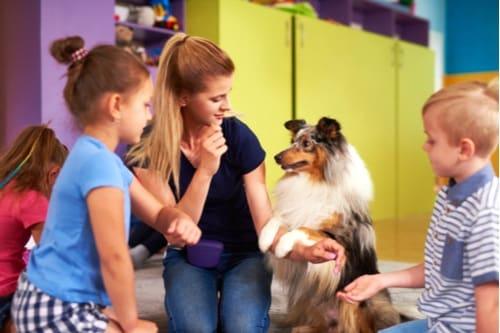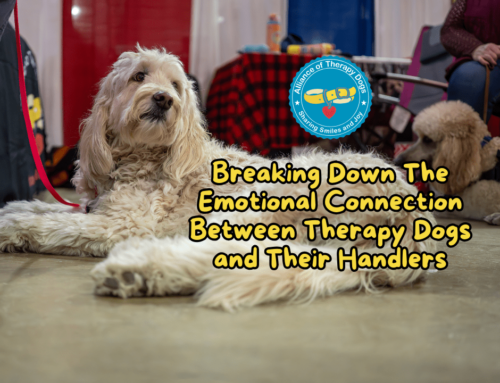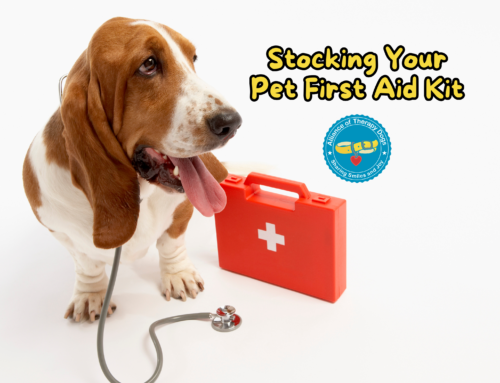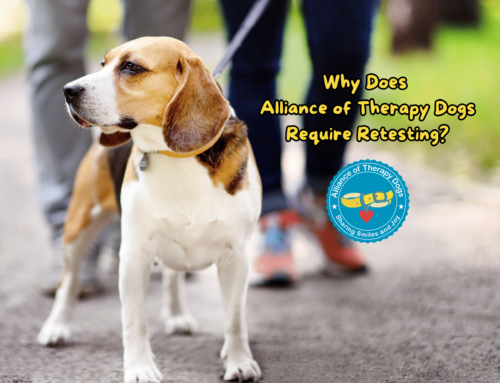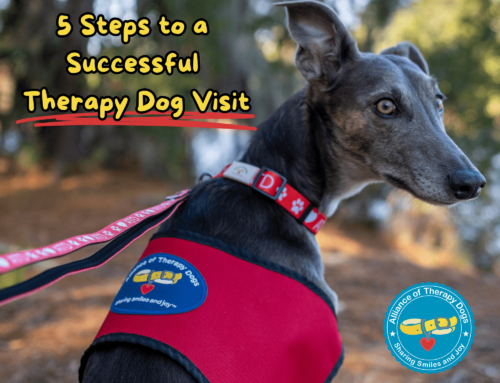Dogs enrich our lives in a great many ways, but therapy dogs, like the ones, tested, certified, and registered by the Alliance of Therapy Dogs, offer extra benefits.
They help people in various facilities improve their mood and gain the strength and confidence to overcome the challenges they face.
Their love and unconditional affection make dogs such great pets, but for individuals in many settings, it is impossible to own or stay in regular contact with a pet dog.
Therapy dogs act as a unique substitute, but they can also offer various benefits such as emotional support.
For children, these dogs are particularly important. Children are still developing their minds and social skills, so they need all of the interaction and support they can get.
Here is a list of just five ways that therapy dogs can benefit kids.
About Therapy Dog
Therapy dogs visit various facilities, such as schools, hospitals, nursing homes, and others. Working alongside their handlers, therapy dogs perform a vital service and allow people in these facilities to spend time cuddling and interacting with a furry friend.
The Alliance of Therapy Dogs has been certifying and registering therapy dogs for over 30 years. As a result, we know what makes a good therapy dog and can help owners to get their dog certified if they are suitable. We accept dogs of all ages and breeds: our focus is on temperament and relationship with their handler. Once they are certified, they can start visiting establishments and providing cuddles and unique experiences.
Therapy Dogs Help Strengthen The Bond Between Parent And Child
Children living in a hospital facility might struggle to bond with their parents, who live elsewhere. Children who have had to spend many years in a hospital or healthcare center are particularly impacted, as they haven’t spent a lot of time being cared for exclusively by their parents. Shared experiences meeting and cuddling a therapy dog can be an important way to strengthen the parent and child bond and give them both fond memories to reminisce about, even when the dog is no longer present.
They Help Autistic Children To Grow Emotionally
Autistic children often struggle to handle their emotions and deal with social situations, but therapy dogs can help them to overcome these challenges. Spending time with a dog can give the child the chance to face their emotions and share them with both the dog and their handler. Therapy dogs also offer a myriad of additional benefits for autistic children. A therapy dog that visits a facility where they live or play is providing an essential service.
Spending Time With A Dog Can Alleviate Stress
Students or young people who are feeling stressed can develop mental and physical health problems. Spending time with a dog is excellent for their health, but many parents cannot have a pup in their home. For students or stressed-out kids who don’t own a dog, a therapy dog is a perfect substitute. They can spend time cuddling and interact with the dog without having the responsibility of a dog owner. Many therapy dog teams visit high schools and colleges during exam weeks to provide some stress relief.
Therapy Dogs Encourage Children To Be Calm
A visit from a therapy dog can incent children who struggle to handle their emotions or stay still. They will know that to have fun with their furry visitor, they need to be calm, gentle, and slow. They will have to calm down for the duration of the visit, which will help them learn about regulating their emotions.
They Help Children Learn How To Interact With A Dog
As mentioned above, not all children have the privilege of growing up with a pet dog of their own. Children who don’t live with a dog might not understand how to behave around one, which could cause an incident when they are in a park or another space where dogs roam unleashed-spending time with a therapy dog will teach children how to interact with dogs. Even if they don’t have one at home, the child can learn about how to handle dogs in a safe and fun way. These interactions could prevent a potentially dangerous future situation, as dogs can be unpredictable when treated in the wrong way and might accidentally harm a child if they do not behave correctly.
If you’d like to get involved with the Alliance of Therapy Dogs or find out more about how you can support our cause, then feel free to get in touch. We always love to hear from dog owners, so call 307-432-0272 or contact us!

